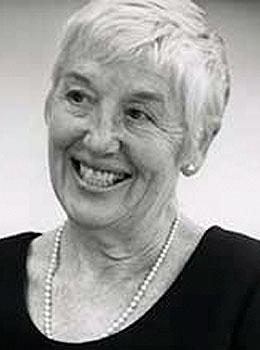In 1983, epidemiologist Maureen Henderson, M.D., Dr.P.H., manifested her vision of creating a multidisciplinary cancer prevention program that included medical, epidemiological, statistical and behavioral scientists working together, when she founded the Fred Hutchinson Cancer Research Center’s Cancer Prevention Program.
She served as director until 1994, publishing more than 60 papers during her time leading the program, and retired in 1998.
She was instrumental in establishing and directing the Women’s Health Initiative (WHI), one of the largest U.S. prevention studies of its kind, and which has demonstrated that using estrogen plus progestin hormone therapy after menopause increased the risk for heart disease, stroke, blood clots, breast cancer, and dementia. This long-term national health study, which is ongoing, is an ethnically and geographically diverse study of women designed to address multiple risk factors for cardiovascular disease, cancer and osteoporosis—the most frequent causes of death, disability and poor quality of life in postmenopausal women.
Dr. Henderson joined the University of Maryland’s School of Medicine in 1960 as an instructor, earning a professorship of preventive medicine 8 years later, and in 1971 becoming the first woman to hold the chair of the department. In 1975, Dr. Henderson began a professorship of epidemiology and medicine at the University of Washington.
At her passing in 2012 at the age of 86 years old, Fred Hutch president Dr. Robert Day described her as an “important leader among her peers, a great mentor, and a vigorous proponent for improved health based on good research.” He also noted that she was “a friend to many” who led the organization to “think, write, and practice as better professionals by following her example,” adding that she was “an outstandingly good person.”
To learn more about Dr. Henderson’s legacy, read this Fred Hutch article.

